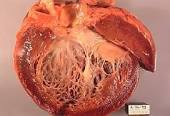
Diagnosed with Cancer? Your two greatest challenges are understanding cancer and understanding possible side effects from chemo and radiation. Knowledge is Power!
Learn about conventional, complementary, and integrative therapies.
Dealing with treatment side effects? Learn about evidence-based therapies to alleviate your symptoms.
Click the orange button to the right to learn more.
- You are here:
- Home »
- Blog »
- side effects ID and prevention »
- Sleep Problems- Heart Failure-5 Fixes
Sleep Problems- Heart Failure-5 Fixes

“According to Markham, most people with heart failure figure out their best sleep position through trial and error. Here are 5 things to try if you have heart failure and are struggling to get a good night’s sleep.”
I have cardiomyopathy. The article linked below talks about heart failure. For the sake of this post I am going to consider cardiomyopathy to be the same as heart failure.
In addition to all the other therapies I follow to manage my heart health, maybe the most important of these is sleep. Nothing fancy, just eight or so hours of sleep. Most nights. Yes, I nap maybe 2-3 afternoons a week. But a good night’s sleep is the key to mind and body health.
I have highlighted those parts of the article below that apply to me. I mean directly to me. There was a time in my life when I could sleep for 12 hours any time I wanted. No longer…
It’s important to point out however, that between helpful articles like the one below along with some trial and error, I can now get a good nights sleep… most of the time.
In addition to the “fixes” below, I will add a few of my own sleep remedies.
- Deep breathing. Anytime I feel anxious or breathless for any reason, such as orthopnea, I breath deeply. My a-fib is already beating out of control so relaxed breathing…well, relaxes me.
- Natural sleep remedies– melatonin, magnesium, others.
- Room temperature- I sleep better in a cold room but read this-
- Magnesium-
All to say that while a good night’s sleep is no longer a snap, I can get there if I make an effort.
To learn more about sleep, health, exercise, etc, scroll down the page, post a question or comment and I will reply to you ASAP.
thank you,
David Emerson
- Cancer Survivor
- Cancer Coach
- Director PeopleBeatingCancer
Recommended Reading:
- Discover the Health Benefits of C-B-D
- Living With Chronic Atrial Fibrillation with Non-Conventional Therapy
- Evidence to Manage My Heart Disease is “Weak”
Healthy Sleep Pattern May Reduce Risk for Cardiovascular Disease
“A healthy sleep pattern is associated with reduced risks for cardiovascular disease (CVD), coronary heart disease (CHD), and stroke, according to a study published online Dec. 18 in the European Heart Journal…
4 Sleep Problems Related to Heart Failure and 5 Ways to Manage Them
“Heart failure may cause you to feel weak and fatigued during the day. But did you know that daytime tiredness might be in part the result of sleep problems exacerbated by or occurring in conjunction with heart failure?
Known culprits include sleep apnea, orthopnea, and periodic limb movement disorder…
1. Sleep Apnea
Sleep apnea is present in up to 70 percent of heart failure patients, says Dr. Khayat.
There are two types of sleep apnea: obstructive sleep apnea (OSA), the most common type where the muscles in the back of the throat collapse too much during sleep, partially or completely blocking the airway. Less common central sleep apnea (CSA) tends to affect those with more severe cases of heart failure, and men in particular, says Khayat. “In some heart failure cases, you can have one or the other, or both,” says David Markham, MD, associate professor of medicine at Emory University and an expert in advanced heart failure and transplant cardiology. Both OSA and CSA interrupt nighttime breathing and contribute to daytime fatigue.
“Both conditions can result in a periodic drop in blood oxygen levels, which increase the adrenaline levels in the body and result in awakening,” says Khayat. “And all of these activities are detrimental to heart failure control.”
2. Orthopnea
Many people with heart failure also experience orthopnea, a feeling of breathlessness while lying down, or paroxysmal nocturnal dyspnea, shortness of breath that wakes them up after one or two hours of sleep, says Dr. Markham. “These are related to ventricular pressure and volume overload,” he says. Both conditions improve upon sitting or standing.
3. Periodic limb movement disorder (PLMD)
In PLMD, increased nerve traffic in the legs and arms causes them to twitch involuntarily while you sleep, which may awaken you, says Khayat. “A person wouldn’t remember these twitches because they are very brief episodes. But they can disrupt sleep and you can wake up feeling not refreshed or just tired.”
4. Insomnia
Insomnia, which often goes hand in hand with chronic conditions, may also be to blame. “If you have a chronic condition, often there’s a degree of concern or anxiety. Sometimes there’s concern over hospitalizations, medication schedules. Or there’s decreased activity. All of these things affect your ability to maintain sleep,” says Khayat.
Better Sleep Positioning
According to Markham, most people with heart failure figure out their best sleep position through trial and error. Here are 5 things to try if you have heart failure and are struggling to get a good night’s sleep.
1. Get screened for sleep apnea. In cases of OSA, a continuous positive airway pressure (CPAP) machine or other treatment may be prescribed. “In some of the patients who have this (CPAP) treatment, we see improvement of the ejection fraction, which is the pumping function of the heart, and there’s even some data to support that arrhythmias may be decreased by this intervention as well,” says Markham.
2. Sleep on your side. If you have sleep apnea, side sleeping can be beneficial for those who don’t tolerate CPAP, says Khayat. “In heart failure patients, lateral sleep positions on the side, left or right, can often decrease sleep apnea.”
A bit of controversy surrounds whether the left or right side is best, says Khayat. If you have an implanted defibrillator, sleep on the opposite side. Most defibrillators are implanted on the left side, so sleeping on the right side may feel more comfortable.
“If they don’t have an implant, sometimes the left side is more comfortable because, just like in pregnancy, it relieves the pressure off the IVC, the body’s largest vein, which is on the right,” says Khayat.
3. Elevate the head of your bed. “Some people need more pillows or need to elevate the head of the bed just in order to sleep,” says Markham. Sleeping on an incline can reduce the anatomical and volume overload of lung congestion, including orthopnea and paroxysmal nocturnal dyspnea.
Medicare Part B covers the rental or purchase of adjustable hospital beds provided your doctor prescribes the equipment as medically necessary. Your 20 percent copay and deductible apply. Extra pillows also work, but your entire back, along with your head, needs to be elevated.
4. Elevate your feet. If you have edema in your legs or feet, you may find it comfortable to put pillows under your legs to reduce the swelling, says Markham. Wearing compression socks at night may also help.
5. Avoid sleeping flat on your back, unless you have a CPAP machine. “Once the patient gets on CPAP, they can sleep in any position they want because the machine prevents sleep apnea,” says Khayat.
Regardless of sleep position, if you want to get a better night’s sleep with heart failure or any chronic condition, the main focus should be on good sleep hygiene, says Khayat. He recommends maintaining a regular sleep and wake time, avoiding alcohol and caffeine before bedtime — both of which can disrupt sleep — and staying off electronic devices several hours prior to sleep, which can make it more difficult to fall asleep.
If your doctor okays it, Khayat also suggests those with heart failure get daily brisk exercise. “A cardiovascular routine that lasts 20 or 30 minutes about four to five hours before bedtime helps in improving their sleep consolidation, their ability to generate sleep and to stay asleep,” he says.”


